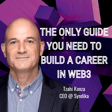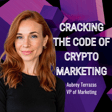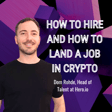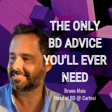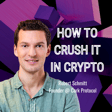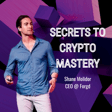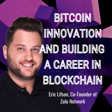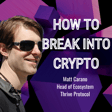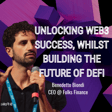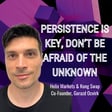
Alex Katz, CEO of Kerberus Cyber Security: How to Stay Safe in Web3
Host Jack Goodridge sits down with Alex Katz, the trailblazing CEO of Kerberus Cyber Security, for a no-holds-barred look at building a crypto security startup. From his gritty start in Argentina to bootstrapping a company in Thailand that boasts a 99.9% scam detection rate, Alex shares his unconventional path through real estate, marketing, and a bold leap into crypto.
Discover the challenges of wearing ten hats, managing startup stress, and finding product-market fit in the chaotic Web3 landscape. Packed with honest lessons on launching a company, community-building, and why mindset trumps credentials, this episode is a must-listen for anyone dreaming of making waves in Web3.
Tune in for a thrilling, no-fluff ride into the future of crypto security
